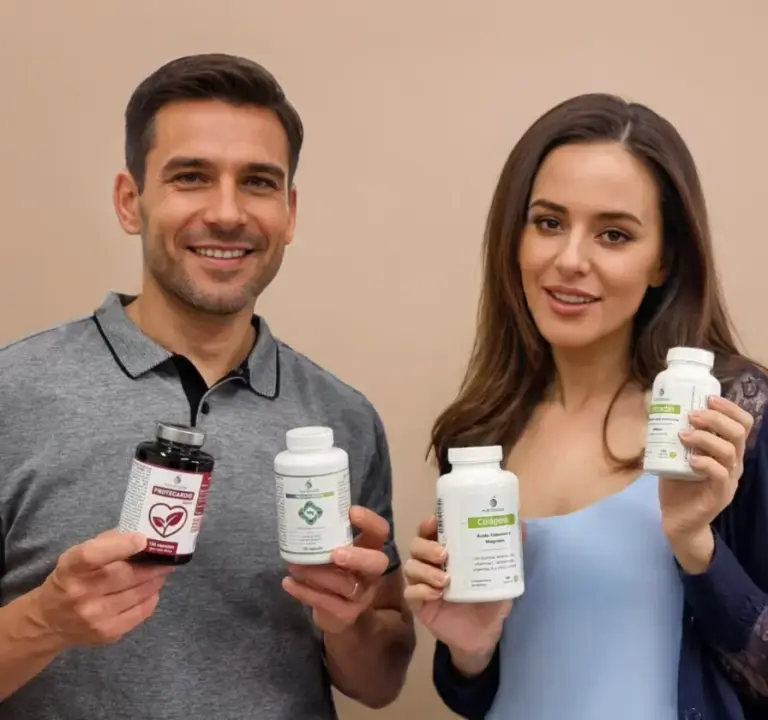Homocysteine and heart disease link
Numerous clinical and epidemiologic studies have shown that vascular disease risk is directly correlated with blood homocysteine levels.1 Metaanalysis of published studies suggests that lowering homocysteine concentrations would be estimated to benefit 15–40% of the population by preventing vascular disease.2
Current clinical trials show that dietary deficiencies of vitamins B-6 and folic acid, and absorptive deficiency of vitamin B-12, lead to elevation in blood homocysteine concentrations, which produces vascular disease in the population.3,4
In addition, genetic factors are involved. A genetic variant of methylenetetrahydrofolate reductase, MTHF reductase leads to increased risk of vascular disease if dietary folic acid is marginal. The amounts of dietary B vitamins needed to prevent elevations in blood homocysteine are 3 mg vitamin B-6 and 400 mcg folic acid, as shown by the Framingham Heart Study.1-3
Vitamin B-12 and homocysteine
Vitamin B-12 intakes are generally adequate, except in vegans, who consume no meat, fish, or dairy foods. Vitamin B-12 is present only in foods of animal origin, so strict vegans may have insufficient intakes to prevent elevations in blood homocysteine.4
Vitamin B-12 absorption is inadequate in 15% of the elderly population aged more than 65 y because of lack of gastric acidity or infections by Helicobacter pylori.5 For this reason, some elderly persons are susceptible to the subtle mental symptoms, neurological changes, weakness, and fatigue that are associated with deficiency of vitamin B-12.
In addition to vitamin B-6, folic acid, and vitamin B-12, vitamin B-2 (riboflavin) was recently shown to be a determinant of blood homocysteine, especially in persons with the common genetic variant of MTHF reductase.6-8
Homocysteine concentration and group B vitamins supplementation
According to the recommendations of Dr. McCully9 who discovered the link between homocysteine and heart disease risk,
- If the homocysteine concentration is in the range of 4–8 micromol/L, the risk of vascular disease from this etiology is low, and a healthful and nutritious diet, abundant in vitamin B-6, folic acid, and vitamin B-12 from fruit, vegetables, whole grains, fresh meats, and seafood, should be continued.10 If the homocysteine concentration is in the range of 8–12 micromol/L, an effort should be made to improve the quality of the diet, providing sufficient vitamin B-6, folic acid, and vitamin B-12 to keep homocysteine concentrations low and to minimize disease risk.
The aging process is associated with decreased ability to absorb these B vitamins, which results in a gradually rising homocysteine concentration with age, approximately 1 micromol/L per decade.
- Over the age of 60 years, consideration should be given to consuming 3 mg vitamin B-6, 400 mcg folic acid, and 100 mcg vitamin B-12 as dietary supplements, most conveniently in a daily multivitamin pill, in addition to consuming a healthy and varied diet.
- If the elderly person is sedentary, obese, and a smoker consuming a poor diet, the homocysteine concentration may be in the range of 10–14 micromol/L. In addition to consuming an improved diet, supplements of 10 mg vitamin B-6, 1000 mcg folic acid, and 100 mcg vitamin B-12 should be considered to decrease disease risk.
- If there is a family history of heart disease, hypertension, and a low HDL concentration, the disease risk is high and the homocysteine concentration is likely to be in the range of 12–20 micromol/L. An improved diet and supplements of 50 mg vitamin B-6, 2000 mcg folic acid, and 500 mcg vitamin B-12 should be considered.
- If there is a history of angina, ischemic attacks, kidney failure, or diabetes and homocysteine concentrations are in the range of 16–30 micromol/L, disease risk is very high, and an improved diet with 100 mg vitamin B-6, 5000 mcg folic acid, and 1000 mcg vitamin B-12 should be considered. Another advisable supplement is fish oil, which decreases homocysteine concentrations when taken in doses of 12 g/d.11 Fish oil contains omega 3 fatty acids that have a beneficial anti-inflammatory effect.
Nutribiolite has developed two formulas dedicated to support healthy homocysteine levels in the body.
Mag-Fusion precisely combines vitamins B6, B12 and B9 (folates) in their most bioactive forms, with magnesium as magnesium citrate, and vitamin D as cholecalciferol (D3). It is an ideal food supplement for people who need supplementation in their diet to regulate their homocysteine levels. The intake is simple, one capsule twice a day during the main meals.
The other formula is Omega 3- D3-K2. This is an excellent formula that provides fish oil highly concentrated in Omega-3 polyunsaturated fatty acids, vitamin D3 and vitamin K2-7.
The role of Vitamin B supplementation in patients with cardiovascular disease
The most important role of B vitamin supplementation appears to be in primary prevention of heart disease and not to reverse the effects of advanced vascular disease.
The idea that lowering homocysteine does not prevent further heart disease events in patients who have already suffered a cardiac event or stroke, became widely accepted following a series of reviews and meta-analyses done in the past years.12-15
It almost became a dogma.
The positive evidence that lowering the homocysteine levels with vitamin B supplementation had a beneficial effect, was generally ignored, after the results of three major trials known as the VISP 16 HOPE 17 and NORVIT 18 trials were published.
An example is the original report of the HOPE-2 trial17, where the authors of this report concluded: ‘Supplements combining folic acid and vitamins B6 and B12 did not reduce the risk of major cardiovascular events in patients with vascular disease’. This conclusion was made in the abstract in spite of the statement just above it: ‘Fewer patients assigned to active treatment than to placebo had a stroke”. This finding of a 25% reduced risk for stroke was downplayed in the report and was interpreted as “an overestimate of due to the play of chance”.
However, in the years following these three trials, views about the link of homocysteine lowering and stroke began to change, mainly because of recognition of the importance of studying the effect of B vitamin treatment in different subgroups.
Scientists from the Stroke Prevention and Atherosclerosis Research Centre in Ontario, Canada,19 re-analysed the VISP trial with the view of excluding patients that were unlikely to respond to the intervention. In their analysis they excluded patients who were likely to have B12 malabsorption and patients with renal impairment. In fact, in the elderly, who represent a large proportion of vascular patients, the real problem is malabsorption of B12. In this subgroup, baseline B12 status and the dose of B12 administered had important effects. Actually, the best event-free survival was obtained in patients with good B12, who received a high dose of B12 (400 μg). These patients were already receiving a folic acid fortified diet.
Another landmark study, done in 2011 by scientists in Wolfson Institute of Preventive Medicine, in London, UK 20 recognized that, nearly all participants were taking several types of medication in line with current medical practice, and so, they asked the question if lowering homocysteine would add further protection to, or interact with, existing treatments, such as the use of antiplatelet drugs.
This question, together with another report with similar concerns, published from the Division of Neurology in the Department of Medicine, St Michael’s Hospital in Ontario, Canada 21 led to re-examination of several trials, with notable consequences.
For example, the large VITATOPS trial originally reported no beneficial effect of B vitamins on secondary stroke22 but a re-analysis of the data found that patients who were not taking antiplatelet drugs had a 24% reduction in the risk of a primary event, such as a major cardiovascular disease event or even death.23 A meta-analysis of three trials (VISP, HOPE-2, VITATOPS), on 4,643 vascular patients not taking antiplatelet drugs, used stroke as the primary outcome and found an overall 29% reduction in stroke risk in those taking B vitamins. 24 These results have important practical implications since they support the use of homocysteine-lowering B vitamins in people with vascular disease who are not taking antiplatelet drugs.
Indeed, there was evidence from the VISP trial that those taking antiplatelet drugs might be at greater risk of stroke, when treated with high-dose B vitamins 25 and so high-dose B vitamins are probably contra-indicated in such patients.
These results show that it is critical that future trials are designed so that they target groups that are likely to benefit.
- McCully KS. Homocysteine and vascular disease. Nat Med 1996; 2:386–9; REF: McCully KS. Homocysteine, folate, vitamin B6 and cardiovascular disease. JAMA 1998;279:392–3.
- Wald DS, Law M, Morris JK. Homocysteine and cardiovascular disease: evidence of causality from a meta-analysis. Br Med J 2002;325:1202–9.
- Selhub J, Jacques PF, Wilson PWF, Rush D, Rosenberg IH. Vitamin status and intake as primary determinants of homocysteinemia in an elderly population. JAMA 1993;270:2693–8.
- Giles WH, Croft JB, Greenlund KJ, Ford ES, Kittner SJ. Association between total homocyst(e)ine and the likelihood for a history of acute myocardial infarction by race and ethnicity: results from the Third National Health and Nutrition Examination Survey. Am Heart J 2000;139: 446–53.
- Herrmann W, Schorr H, Obeid R, Geisel J. Vitamin B-12 status, particularly holotranscobalamin II and methylmalonic acid concentrations, and hyperhomocysteinemia in vegetarians. Am J Clin Nutr 2003;78: 131–6.
- Warren JR,Marshall B.Unidentified curved bacilli on gastric epithelium in active chronic gastritis. Lancet 1983;1(8336):1273–5.
- Hustad S, Ueland PM, Vollset SE, Zhang Y, Bjorke-Monsen AL, Schneede J. Riboflavin as a determinant of plasma total homocysteine: effect modification by the methylenetetrahydrofolate reductase C677T polymorphism. Clin Chem 2000;46:1065–71.
- Moat SJ, Ashfield-Watt PAL, Powers HJ, Newcombe RG, McDowell IFW. Effect of riboflavin status on the homocysteine-lowering effect of folate in relation to the MTHFR (C677T) genotype. Clin Chem 2003; 49:295–302.
- Stern LL, Shane B, Bagley PJ, Nadeau M, Shih V, Selhub J. Combined marginal folate and riboflavin status affect homocysteine methylation in cultured immortalized lymphocytes from persons homozygous for the MTHFR C677T mutation. J Nutr 2003;133:2716–20.
- McCully KS. Homocysteine, vitamins, and vascular disease prevention. Am J Clin Nutr. 2007 Nov;86(5):1563S-8S.
- McCully KS, McCully ME. The heart revolution. New York, NY: HarperCollins, 1999:71–117.
- Olszewski AJ, McCully KS. Fish oil decreases serum homocysteine in hyperlipemic men. Coron Artery Dis 1993;4:53–60.
- Bazzano LA, Reynolds K, Holder KN, He J. Effect of folic acid supplementation on risk of cardiovascular diseases: a meta-analysis of randomized controlled trials. JAMA. 2006;296:2720–6.
- Clarke R, Halsey J, Lewington S, Lonn E, Armitage J, Manson JE, et al. Effects of lowering homocysteine levels with B vitamins on cardiovascular disease, cancer, and cause-specific mortality: Meta-analysis of 8 randomized trials involving 37 485 individuals. Arch Intern Med. 2010;170:1622–31.
- Clarke R, Halsey J, Bennett D, Lewington S. Homocysteine and vascular disease: review of published results of the homocysteine-lowering trials. J Inherit Metab Dis. 2011;34:83–91.
- Marti-Carvajal AJ, Sola I, Lathyris D, Dayer M. Homocysteine-lowering interventions for preventing cardiovascular events. Cochrane Database Syst Rev. 2017;8:CD006612.
- Toole JF, Malinow MR, Chambless LE, Spence JD, Pettigrew LC, Howard VJ, et al. Lowering homocysteine in patients with ischemic stroke to prevent recurrent stroke, myocardial infarction, and death: the Vitamin Intervention for Stroke Prevention (VISP) randomized controlled trial. JAMA. 2004;291:565–75.
- Lonn E, Yusuf S, Arnold MJ, Sheridan P, Pogue J, Micks M, et al. Homocysteine lowering with folic acid and B vitamins in vascular disease. N Engl J Med. 2006;354:1567–77.
- Bonaa KH, Njolstad I, Ueland PM, Schirmer H, Tverdal A, Steigen T, et al. Homocysteine lowering and cardiovascular events after acute myocardial infarction. N Engl J Med. 2006;354:1578–88.
- Spence JD, Bang H, Chambless LE, Stampfer MJ. Vitamin intervention for stroke prevention trial: an efficacy analysis. Stroke. 2005;36:2404–9.
- Wald DS, Morris JK, Wald NJ. Reconciling the evidence on serum homocysteine and ischaemic heart disease: a meta-analysis. PLoS One. 2011;6:e16473.
- Hankey GJ, Group VTS. B vitamins in patients with recent transient ischaemic attack or stroke in the VITAmins TO Prevent Stroke (VITATOPS) trial: a randomised, double-blind, parallel, placebo-controlled trial. Lancet Neurol. 2010;9:855–65.
- Saposnik G, Ray JG, Sheridan P, McQueen M, Lonn E. Homocysteine-lowering therapy and stroke risk, severity, and disability: additional findings from the HOPE 2 trial. Stroke. 2009;40:1365–72.
- Hankey GJ, Eikelboom JW, Yi Q, Lees KR, Chen C, Xavier D, et al. Antiplatelet therapy and the effects of B vitamins in patients with previous stroke or transient ischaemic attack: a post-hoc subanalysis of VITATOPS, a randomised, placebo-controlled trial. Lancet Neurol. 2012;11:512–20.
- Park JH, Saposnik G, Ovbiagele B, Markovic D, Towfighi A. Effect of B-vitamins on stroke risk among individuals with vascular disease who are not on antiplatelets: A meta-analysis. Int J Stroke. 2016;11:206–11.
- Arshi B, Ovbiagele B, Markovic D, Saposnik G, Towfighi A. Differential effect of B-vitamin therapy by antiplatelet use on risk of recurrent vascular events after stroke. Stroke. 2015;46:870–3.
















